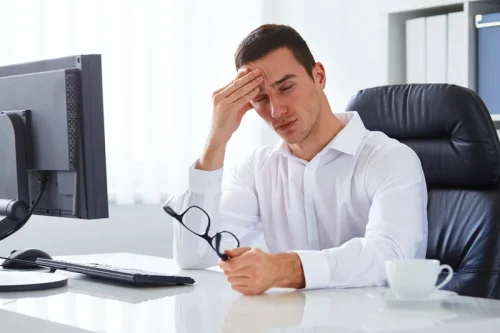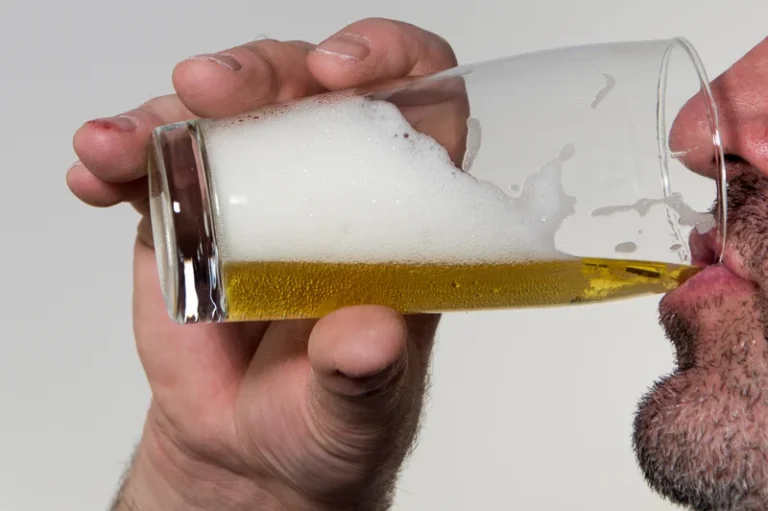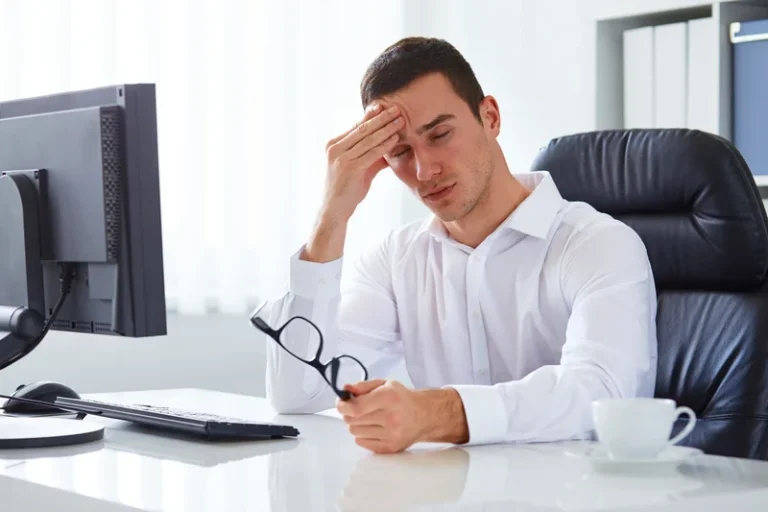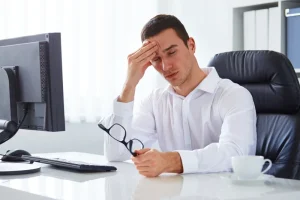
As alcohol can make antidepressants less effective, your doctor may not prescribe them if you’re drinking heavily. Taking little steps to boost your mental health can help you to feel better. If you think you have depression and often use alcohol to cope, Sharma recommends reaching out to a psychiatrist, therapist, or primary care doctor for a diagnosis and treatment guidance.

What is alcohol use disorder?
Just as alcohol consumption causes a wide range of effects on the body and mind, so does the period of withdrawal. These effects contribute to day-after dread, even if you don’t have an anxiety disorder diagnosis. How long this anxiety (and other hangover symptoms) lasts depends on factors like how much you’ve consumed, your assigned sex at birth, and your weight. One study by the National Institute on does alcohol make depression worse Alcohol Abuse and Alcoholism found that people with alcohol use disorder (AUD) were 2.3 times more likely to have major depressive disorder than people who did not have AUD.
Relieving depression linked to drinking

The full impact of drinking too much hits about 72 hours after the alcohol has left the bloodstream. This is when withdrawal symptoms of increased anxiety, irritability, restlessness, agitation and disturbed sleep, among others, are at their peak. According to WebMD, nearly one-third of people with severe depression abuse alcohol.
Alcohol use and depression symptoms
These blues usually don’t linger, though, so you’ll probably feel better in a day or so. Taking some time for productive relaxation can also help ease feelings of depression. Even if they don’t improve immediately, you’ll probably have an easier time doing something about them when you don’t have to deal drug addiction with physical symptoms, too. When you regularly turn to alcohol to manage challenges and negative feelings, you may not take other actions that could help you address those problems effectively.
- The assumption is that an individual would not be engaging in a given behavior if it did not serve some function.
- Along with the other symptoms of a hangover, such as regret and embarrassment, anxiety can drive feelings of irrational worry, panic, or fear.
- When other factors beyond alcohol play into your mood, however, feelings of depression might persist even after your hangover improves.
- Nearly one-third of people with major depressive disorder also have alcohol use disorder.
The researchers concluded that the genetic influences important in alcoholism appear to be relatively specific for that disorder and did not significantly alter the risk for additional psychiatric disorders, including major depression and major anxiety disorders. Another twin study by Mullin and colleagues1 showed no increased risk for anxiety disorders in identical twins of alcoholics with the exception of conditions (e.g., anxiety) that might have resulted from the alcoholism in the person’s twin. A recent report from the Collaborative Study on the Genetics of Alcoholism (COGA) focused on 591 personally interviewed relatives of alcohol-dependent men and women (Schuckit et al. 1995).
However, the flip side is that people who frequently use alcohol are more likely to also be depressed. Drinking a lot may worsen these feelings, which may actually drive further drinking. It’s also important that people with a history of depression are aware that their mental health might be putting them at a greater risk of physical ailments. Physical and mental health are often siloed from one another, seen as distinct specialties, Guthrie said. So people have to advocate for themselves, making sure their provider addresses both aspects of their health.

- In the United States alone, an estimated 17.3 million adults have had at least one major depressive episode.
- Several studies suggest that military veterans are more likely to experience depression, post-traumatic stress disorder (PTSD), and misuse alcohol.
- Maybe you’re downing a few beers after a stressful week at work or after a heart-wrenching break up.
- I’ve never been a heavy drinker, but within my Irish family, we have a history of alcoholism.
Similar results have been generated from some, but not all, studies of alcoholism in relatives of patients with severe anxiety disorders. Nor did a review of several recent studies by Fyer and colleagues1 and Noyes and colleagues1 reveal high rates of alcoholism in relatives of people with social phobia or other anxiety disorders (Schuckit and Hesselbrock 1994). Heavy drinkers represent a significant subpopulation of depressed patients who are more likely to do poorly in depression treatment in the absence of a change in their drinking behavior and are at risk for drinking-related consequences as well.


Certain ongoing treatment studies also are further evaluating the potential usefulness of buspirone, some specific anti-depressants, and other medications that affect brain chemicals as potential components for treating alcoholism. Each of these studies is taking steps to evaluate the importance of these psychiatric medications while considering whether subjects’ depressive or anxiety syndromes are likely to be alcohol induced or may indicate longer term independent psychiatric disorders. Consistent with the generally negative results of these family type studies are the conclusions drawn from a recent study of 1,030 female-female twin pairs (Kendler et al. 1995).
